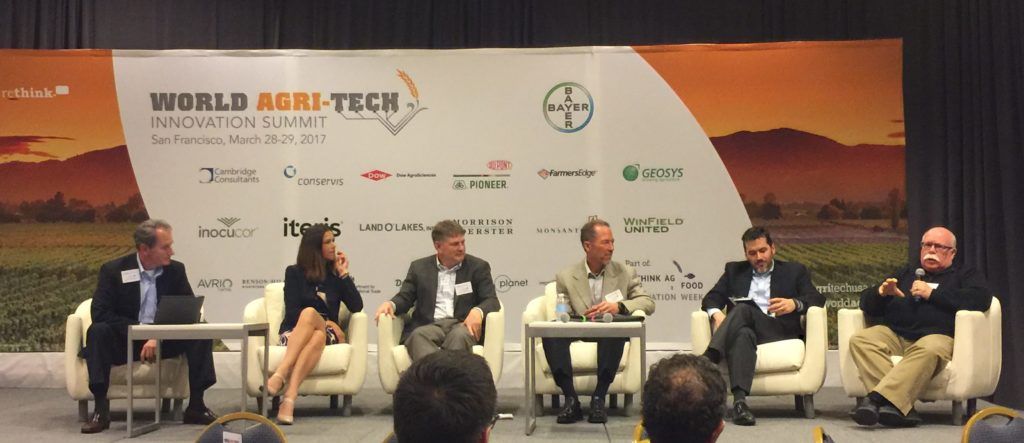Gene editing was a key topic discussed at this week’s World Agri-Tech Innovation Summit in San Francisco. It was particularly relevant as Benson Hill Biosystems, the plant biology, big data analytics and cloud computing startup, came out of stealth earlier this week with a new gene editing tool it’s calling CRISPR 2.0.
The most well-known gene editing tool is CRISPR Cas-9, which was discovered in 2012 as a means to more precisely edit genes in and out of DNA sequences using a novel enzyme, Cas-9. In agriculture, CRISPR Cas9 is currently being used to knock-out unwanted genes from crops to promote preferable traits such as drought tolerance. It’s been lauded as the cheapest, fastest, and most precise gene-editing tool on the market, although that’s open to debate. But the most exciting and perhaps controversial part of gene-editing technology generally is that it’s not labeled as genetic modification — which usually implies the introduction of foreign DNA — and is therefore not currently subject to regulation.
While the potential for the technology the industry is great, there is one clear challenge ahead for gene-editing practitioners: consumer acceptance.
“All the technology and science is hard enough in itself, but the biggest challenge with the technology working is getting consumer acceptance,” said Vonnie Estes, VP of business development at Caribou Biosciences, the startup using CRISPR Cas-9 to produce agricultural products with DuPont Pioneer.
Estes and some of her fellow panelists expressed fears that gene-editing food would fall into the same category among consumers as GMO has.

“We are looking at gene editing seriously, but the first thing we think about is our brand and our reputation with the consumer,” said Dave Sterry, SVP Global R&D from Driscoll’s. “Right now, we are a non-GMO, traditional plant breeding organization and we’re very anxious not to repeat the GMO experience and to take lessons from that. We need to think about how we bring the consumer along with us, and be thoughtful about any unintended consequences of using the technology.”
GMO-free food fast became a trend among consumers and David Darr, general manager of Farm Services and vice president of Sustainability at Dairy Farmers of America, said it’s impacting the cooperative’s members.
“We are getting steady pressure to remove any GMO products from our feed supply, and there are yogurt brands making statements about going GMO-free in their feed supply which is impacting members across the country,” he said.
At the same time, consumers berate dairy farmers for the methods they use of removing horns from their cattle to stop them harming themselves and others. Gene editing could play a role here in essentially breeding out the trait for horns, but the feedback the cooperative is getting is unsure if that’s a road to go down.
“It takes balance and being able to understand consumer concerns and working with them,” said Darr.
While being concerned about consumer acceptance, Caribou’s Estes believes consumer attitudes are changing.
“I see some cracks emerging that might make things easier if we pay attention because I think the anti-GMO crowd is aging, and soon they won’t have the Monsanto name to kick around,” she said.” Younger consumers care about transparency and traceability, and they’re more tech-savvy, so if we communicate better, we might have a better chance at gene editing being accepted.”
Haven Baker, vice president of life sciences at agribusiness Simplot, doesn’t believe consumer acceptance is actually the issue; it’s brand adoption that will drive the use of the technology in agriculture.
“Stores have a very high hurdle on what they put on their shelves, so they don’t get brand damage, and that hurdle is much higher than consumer acceptance,” he said. “I suspect we will see adoption in areas where the big brands aren’t first.”
Costco’s vice president of quality assurance and food safety Craig Wilson has no qualms about using the new technology.
“We are going to embrace gene editing the same way that we have embraced GMO,” he told delegates.
What do you think? Email [email protected]





